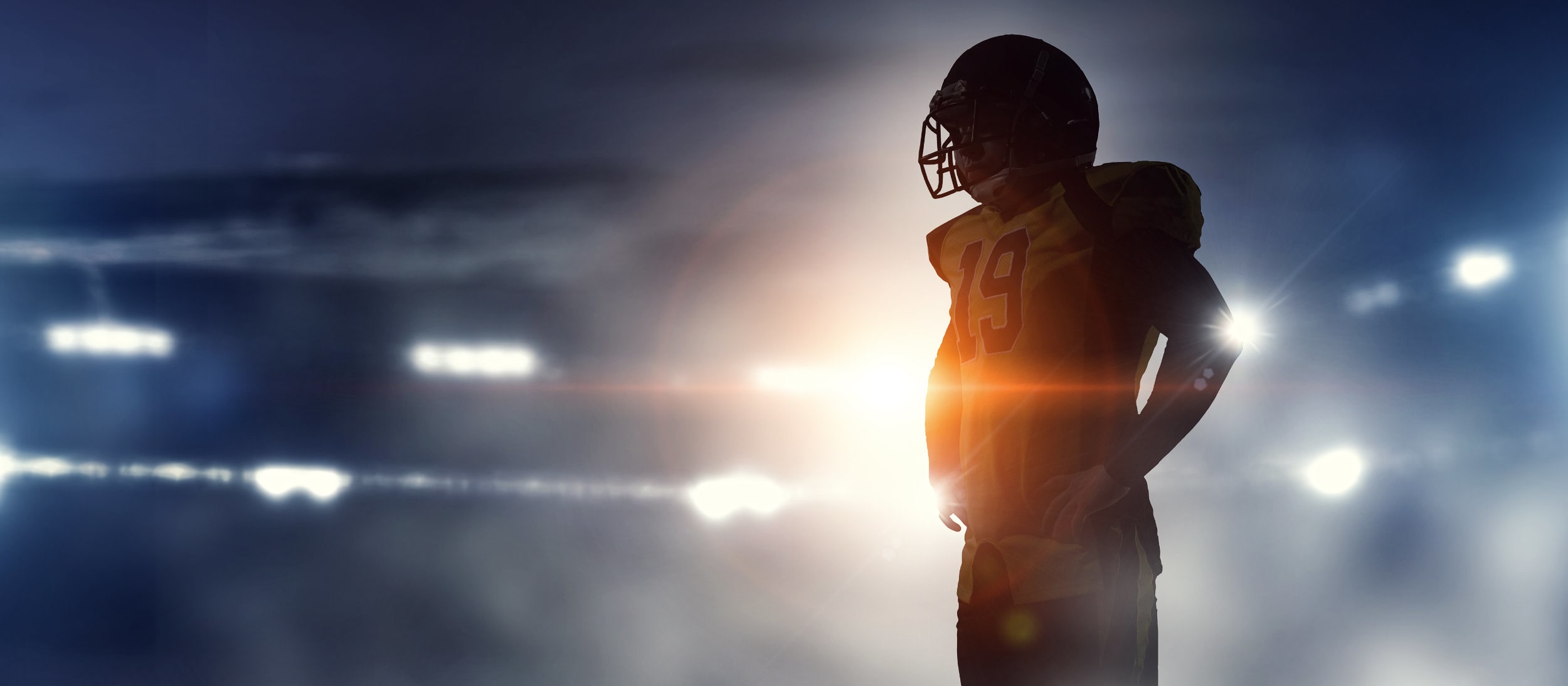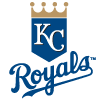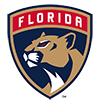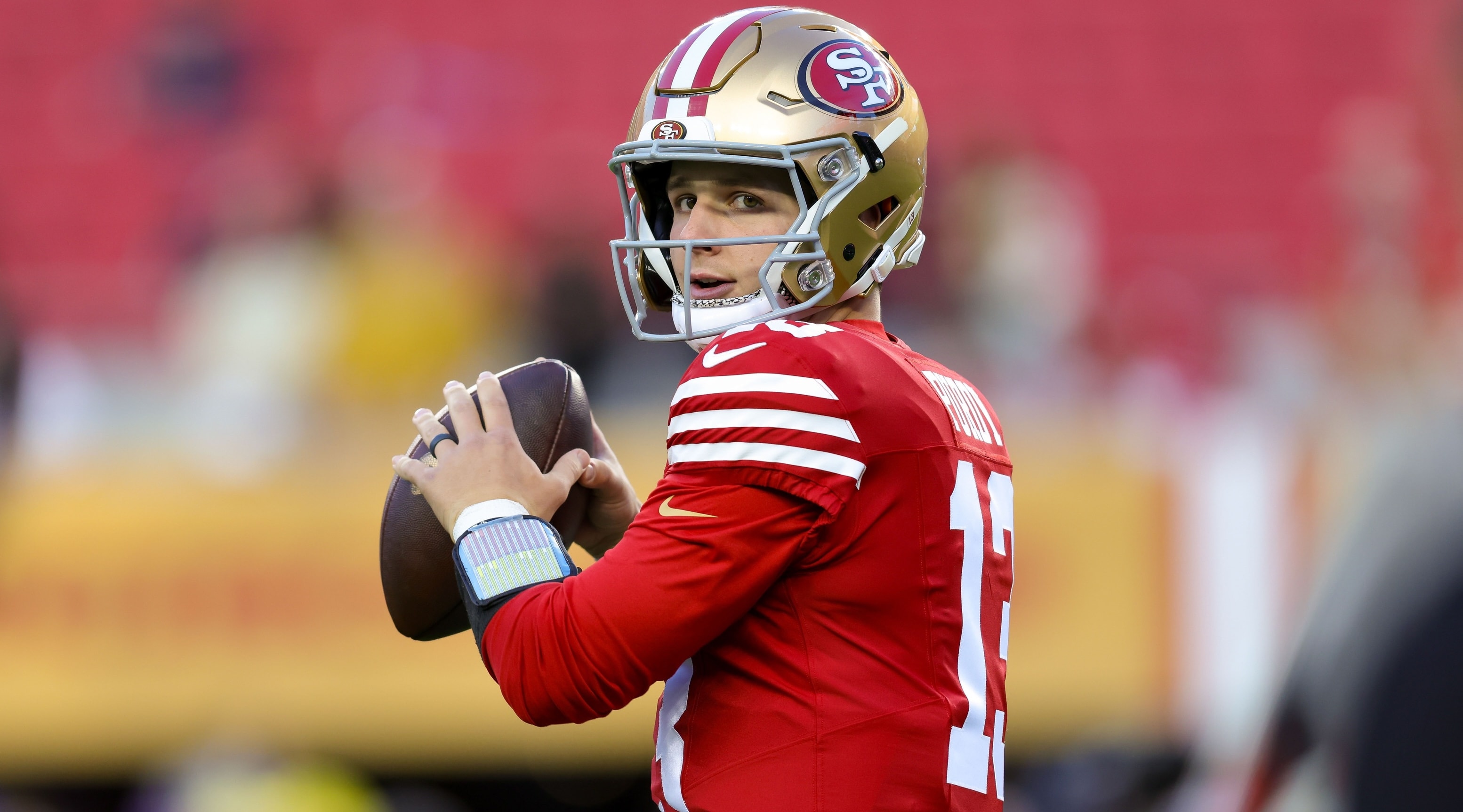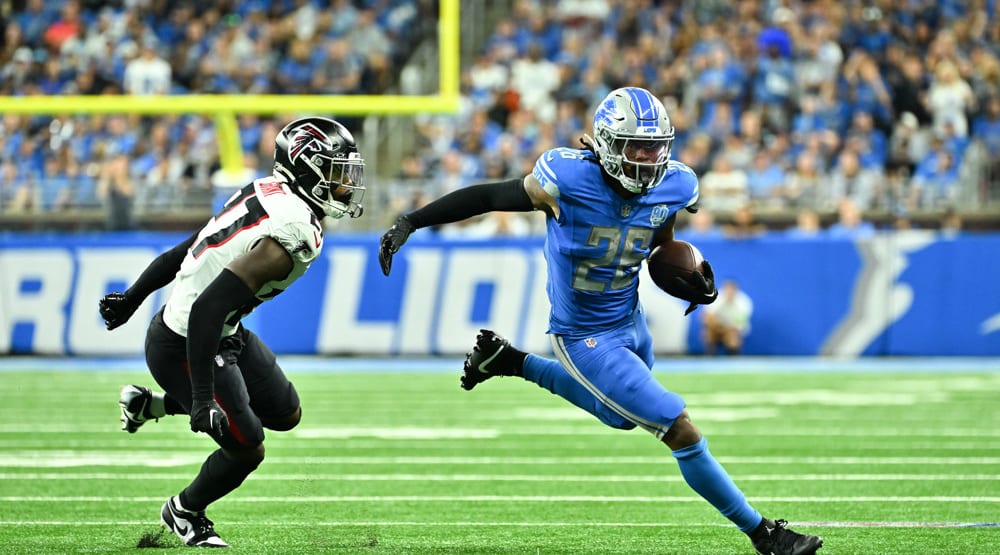Buffalo (21) vs. Jets (12)
The Buffalo defense might be decent – it has some good personnel in the front four especially – but the Jets can probably claim most of the credit for their offensive struggles Sunday. Josh McCown was pretty much harmless in all senses, neither extending drives nor handing the ball to the defense. Robby Anderson is too skinny to thrive on the short passes McCown seemed most interested in throwing. Austin Seferian-Jenkins could see a flood of checkdown targets when he returns from suspension.
Matt Forte and Bilal Powell mostly just got in each others' way, with neither standing out with the snaps they managed to keep for themselves.
LeSean McCoy might have durability questions to face after dealing with knee and hamstring issues both of the last two years, but his talent remains as evident as ever. He remains a blur with a rare ability to burst laterally, routinely making defenders look as if their place on the tape is running a full second behind his own. Mike Tolbert also looked decent enough and, more important, the Bills seemed focused on using him as a traditional running back. He appears the handcuff for McCoy.
Tyrod Taylor generally did what you would expect him to, flashing lethal elusiveness while otherwise posting middling passing production. He looked good, though – his interception was a tipped pass that probably just should have been caught. He showed good chemistry with the probably underrated Charles Clay, though rookie second-round
Buffalo (21) vs. Jets (12)
The Buffalo defense might be decent – it has some good personnel in the front four especially – but the Jets can probably claim most of the credit for their offensive struggles Sunday. Josh McCown was pretty much harmless in all senses, neither extending drives nor handing the ball to the defense. Robby Anderson is too skinny to thrive on the short passes McCown seemed most interested in throwing. Austin Seferian-Jenkins could see a flood of checkdown targets when he returns from suspension.
Matt Forte and Bilal Powell mostly just got in each others' way, with neither standing out with the snaps they managed to keep for themselves.
LeSean McCoy might have durability questions to face after dealing with knee and hamstring issues both of the last two years, but his talent remains as evident as ever. He remains a blur with a rare ability to burst laterally, routinely making defenders look as if their place on the tape is running a full second behind his own. Mike Tolbert also looked decent enough and, more important, the Bills seemed focused on using him as a traditional running back. He appears the handcuff for McCoy.
Tyrod Taylor generally did what you would expect him to, flashing lethal elusiveness while otherwise posting middling passing production. He looked good, though – his interception was a tipped pass that probably just should have been caught. He showed good chemistry with the probably underrated Charles Clay, though rookie second-round pick Zay Jones disappointed in his debut.
Chicago (17) vs. Atlanta (23)
The Chicago defense is modest on talent, but it's fiery and well-coached. Matt Ryan didn't have it as easy as his 116.1 quarterback rating from Sunday might imply. The Bears were successful in limiting Ryan's volume to 30 attempts, which was crucial for making the game as close as it was, but Ryan will post bigger numbers if he plays similarly well against upcoming opponents.
Devonta Freeman and Tevin Coleman – both in nature and usage – are exactly what everyone expected. It seems destined to remain that way for at least this year.
What was more surprising was the Chicago backfield, where Tarik Cohen stole the show with his burst and quickness. He turned five carries into 66 yards, and eight receptions into 47 yards and a touchdown on 12 targets. I remain skeptical that he'll provide reliable rushing production, and even a team as bereft of pass-catching talent as the Bears would struggle to rationalize 12 targets if they yield an average of less than four yards, but Cohen is worth pursuing in PPR formats in light of Kevin White's third consecutive season-ending injury. Still, I'm wary of investing too much in Cohen in an NFL where past players with similar skill sets and builds were unceremoniously discarded. I don't want to bet that his 5-foot-6, 181-pound frame will hold up under traditional running back tasks, and I don't want to bet he'll get double-digit targets every week to offset that sort of per-target inefficiency.
Cohen is at the very least a major problem for Jordan Howard, however. Howard looked fine as a runner, but per-target inefficiency or not, Cohen is a more skilled receiver than him. In a game where Chicago was the heavy underdog, that meant splitting the backfield almost evenly with the diminutive rookie back. For a player with a second-round ADP, Howard's owners can't afford too many replays of Sunday's scenario.
As far as the Chicago passing game, Mike Glennon looked bad, and at this point I would guess the only way he's starting in a month is if the Bears decide it would be unwise to let rookie Mitchell Trubisky onto the field with such bad surrounding personnel.
Cincinnati (0) vs. Baltimore (20)
Joe Flacco seemed like himself; mostly composed but prone to the checkdown. He took a few big hits but apparently his back still held up fine. Jeremy Maclin looked fast on his touchdown sprint, but it was generally a busted play on the part of the Bengals' defense.
Terrance West inexplicably fell in the backfield on his first carry, but he looked competent afterward. The Ravens' offensive line also seemed to open up good running lanes. The bad news is that Javorius Allen looked fairly slick himself, though Allen botched a blitz pickup in the red zone on a third-and-two playaction.
The Bengals' offense, obviously, was a disaster. The offensive line wasn't great in pass protection, but I have trouble rationalizing the showing of Andy Dalton. A.J. Green looked as dominant as ever, and Tyler Eifert's skills are well-documented, so I can't think of an excuse proportionate to the failure.
The Bengals' backfield was also frustrating. The sample for each of the three runners was too small to yield much insight, but a glance at the film reveals about what you'd expect. Joe Mixon predictably showed the best combination of strength and athleticism, Gio Bernard looked slick despite returning from an ACL tear and Jeremy Hill pretty much just got whatever the offensive line gave him. Mixon is the best player of the three and it isn't close, but unless Marvin Lewis thinks as much it's a moot point and a useless situation in general.
Cleveland (18) vs. Pittsburgh (21)
DeShone Kizer had a promising first start. Kizer is a big quarterback with great physical gifts, both as a runner and thrower, and he has natural poise in the pocket. He otherwise lacks polish with accuracy and reading defenses. With all of those things considered, he reminds me a great deal of Carson Wentz, especially at their respective development points. I'm optimistic on both, so consider it a compliment.
Corey Coleman was Kizer's favorite target, and the quality of the former's play Sunday makes Kizer's preference look quite reasonable. Presumed No. 1 wideout Kenny Britt was a major disappointment, on the other hand, catching just one of three targets for 13 yards, including one bad, wide-open drop. Hue Jackson implied Monday that Britt might not be a starter heading into Week 2, which seems like an overreaction but is nonetheless something for which Britt's owners need to account. Seth DeValve and David Njoku were both promising enough, though Kizer might not be able to provide the volume either needs to be a regular fantasy factor at the moment.
Isaiah Crowell's numbers were bad, but he ran well in this one. Even as one of his general skeptics, I wouldn't hold this game against him. Duke Johnson had at least two pass targets far downfield. If Britt faces an extended demotion, Johnson might surprisingly be the primary beneficiary.
Ben Roethlisberger got out with the win, but it wasn't one of his better games. There were at least two occasions where he made reckless throws that Antonio Brown somehow turned into receptions. The Steelers tried to get Martavis Bryant going early with three first-quarter targets – two screens and an overthrow on a crossing route – but the lethargy of the Steelers' offense at large declined Bryant the opportunity of producing much. He was badly overthrown on a deep route and was also the overthrown target over the middle on Roethlisberger's interception.
Le'Veon Bell's numbers were awful and Sunday marked a major missed opportunity generally, but it's an anecdote that probably offers no insight. Bell looked fine running and catching – the Browns just sold out against the run pretty much every time he got it. There's no helping the bitterness in the meantime for his owners, but the decisive bounce back is all but assured in Week 2.
Detroit (35) vs. Arizona (23)
Matthew Stafford started slowly in this one, but after throwing a pick-six in the first quarter he was just about perfect. Either left tackle Greg Robinson made big strides since his days in St. Louis, or the Lions executed brilliant protection schemes. Stafford in any case stood tall in the pocket throughout the final three quarters, repeatedly hitting Golden Tate for first downs that no doubt demoralized the Arizona defense.
Kenny Golladay's arrival is the big story of this game and, unlike fellow rookie breakouts like Cohen or Cooper Kupp, I think Golladay's showing was one portending what's to come. The 6-4, 218, wideout was too imposing to stop in single coverage on a red-zone flag route, and his second touchdown was a brilliant diving catch on a deep route. This is a future WR1, and if he keeps looking like he did Sunday, the future may be closer than we'd guess.
The Detroit backfield was expected to be a nearly even split between Ameer Abdullah and Theo Riddick, but the former was the clear lead ballcarrier while the latter was limited to pass-catching work. If Abdullah can't do better than 30 yards on 15 carries, though, then Riddick, Dwayne Washington and healthy scratch Zach Zenner might get further auditions as runners at Abdullah's expense.
David Johnson's injury is nauseating to talk about, but the question of his replacement is a major one. Kerwynn Williams is the top backup, but you'd struggle to argue he's truly a better running back than Andre Ellington. And then there's Chris Johnson, who re-signed with Arizona on Tuesday after getting cut late in preseason. I'm guessing this turns into a committee, so I won't be spending on ostensible replacements.
Whoever runs the ball in Johnson's place might find the sledding tough if Carson Palmer doesn't improve. He was awful against the Lions, and defenses will have no reason to worry about the pass if he doesn't play better. Larry Fitzgerald needed 13 targets to generate just 74 yards, so I'm not taking anything for a given in this passing game. The offensive line also was bad.
J.J. Nelson was an afterthought early in the game, running as the team's fourth receiver, but Jaron Brown's ineffectiveness could give the Cardinals reason to find more room for the explosive third-year wideout. It should be noted that Nelson dropped a pass on a pass interference play, however, and his red-zone touchdown was in meaningless garbage time. He'll normally need to score from long range.
Houston (7) vs. Jacksonville (29)
Well, Tom Savage can't play. He probably throws nice passes in scripted settings, but he can't read a defense and showed a lacks of instincts for the position.
It took a personal foul and an illegal contact penalty to convert a third down and negate a red-zone interception, respectively, but Deshaun Watson technically led Houston to a touchdown on his first drive, throwing to Hopkins off playaction in a crowded setting. Watson was not effective, struggling both with accuracy and timing, but he was clearly better than Savage, and it should be noted the Houston pass blocking seemed a bit worse in the second half.
Watson's introduction seemed to help Lamar Miller, who saw bigger openings in the second half. Perhaps that was the result of the Jaguars letting their guard down with a 19-point lead, but Miller looked quite good after halftime.
Blake Bortles looked better than I expected, but that passing game is unlikely to stay afloat with Allen Robinson (ACL) done for the year. The pass catchers for Jacksonville otherwise were discouraging.
Leonard Fournette, on the other hand, looked more great than good, and he showed pass-catching skills that could provide unexpected fantasy utility. Chris Ivory also looked good, but his durability issues likely preclude the possibility of him threatening Fournette's workload.
Tennessee (16) vs. Oakland (26)
Marshawn Lynch basically looked like himself. The presence of Jalen Richard and DeAndre Washington predictably limited his function in passing situations, but if he keeps running like he did Sunday then I expect Lynch to be a high-floor, mid-ceiling RB2 this year.
Derek Carr is what he is at this point, and he probably didn't exceed or fall short of anyone's expectations. Amari Cooper showed an expanded skill set, though, memorably turning a three-yard slant into an eight-yard touchdown after breaking two tackles and moving a pile of at least five defenders into the end zone. He dropped touchdown passes on consecutive plays later in the first quarter, but you should trade him to me if you want to sell based on that anecdote. Michael Crabtree looked great after the catch. Jared Cook functioned like a wide receiver at numerous points, which is, of course, a good sign for his fantasy value.
I don't understand how Marcus Mariota finished with just 256 yards and no touchdowns passing. He looks really good, like he has pretty much every time I've seen him play in his NFL career. Rishard Matthews and Corey Davis look good. I'd put Eric Decker behind those two, but we all have reason to expect significant contributions from him at some point, too. Delanie Walker is still himself. If this Titans passing game doesn't take off in Week 2, Mike Mularkey will look quite bad for it. In general, I think the Titans run the ball too often on first down.
DeMarco Murray and Derrick Henry looked about as you would expect. Formidable, but their opportunities were limited Sunday by sputtering drives.
Washington (17) vs. Philadelphia (30)
Kirk Cousins couldn't deliver his usual quality of play, but I won't blame him for it. This Philadelphia pass rush is a problem, and Cousins was set up for failure in this one. Even against a Rams defense that tore apart the Colts, I like Cousin's chances of bouncing back in Week 2.
A big reason why I'm optimistic on Cousins is that Terrelle Pryor looked so imposing. The timing wasn't there between the two Sunday and Pryor had a couple problematic drops, but his combination of size and athleticism really stands out. Jamison Crowder looked quite quick despite playing through a hip tweak. Ryan Grant will likely have a steady presence in this offense, but he's unlikely to ever do more than move the chains occasionally. It's getting difficult to keep the faith in Josh Doctson.
Rob Kelley is like a Joique Bell with less power. Samaje Perine didn't get a touch in this game, but Washington can expect to keep losing if that status quo persists.
LeGarrette Blount generally saw good blocking Sunday, but didn't do a great deal with it. I think Wendell Smallwood pretty clearly has better running skills, and he's a big upgrade as a pass catcher, so I'm probably trying to sell Blount after his improbable receiving touchdown in this one.
Carson Wentz had to avoid a fair amount of pressure Sunday, but his mobility, strength, and improvisational ability make him competent in such settings. His box score would have been significantly better if Alshon Jeffery had been a bit sharper. Wentz could have helped himself, though, if he hadn't missed an open Torrey Smith on two deep routes.
Nelson Agholor's play was by far the most interesting part of this game. I wrote him off going into this year, but after Sunday's game I'm convinced he's in for a breakout season. His speed and quickness is uncommon for a slot receiver, and the Eagles showed a clear intention of feeding him the ball. While his touchdown might not be particularly insightful since it occurred on what was largely a broken play, he might have had a second touchdown if Wentz hadn't overthrown him on a pass to the flats. As long as the Eagles keep scheming him open and he holds onto the ball, Agholor could make a signficicant impact in fantasy this year.
Rams (46) vs. Indianapolis (9)
Scott Tolzien was never meant to be a starter, and especially not on the road against a Wade Phillips defense. T.Y. Hilton and Donte Moncrief are in trouble as long as Andrew Luck (shoulder) is sidelined, and who knows what to make of that timeline.
Marlon Mack was the top runner behind starter Frank Gore, which surprised me after Robert Turbin worked as the top backup most of the offseason. Mack was denied a receiving touchdown on a dubious call that coach Chuck Pagano for some reason didn't review, and scored on a three-yard run. That he had that run and a 24-yard run and ended up with just 24 yards rushing shows that the positives were sporadic at best.
I'm generally a fan of Todd Gurley's chances of bouncing back this year, and I invested accordingly, so I was a bit dismayed when on the first carry of the game he ran into a narrow mass of defenders and blockers instead of bouncing out to either side, where there was seemingly nothing but field for the taking. We all but know that Gurley is a standout athlete at running back, so his 2016 struggles would have to be explained by circumstances, or some non-physical deficiency. Misreading a defense like that first run will really do a number on your rushing average, and this tendency of Gurley's could explain how he finished with just 40 yards on 19 carries. He largely made up for it with five catches for 56 yards, but Gurley needs to stop running into the teeth of defenses when the outside is open.
Jared Goff's 2017 debut was unambiguously encouraging. He looked decisive and unafraid in Sean McVay's offense, and that confidence is a big first step after his uniquely bad rookie year. He showed strong chemistry with all of his top three receivers – Sammy Watkins, Robert Woods and Cooper Kupp. Kupp had the biggest fantasy day of the three, but I still see nothing in the film or his prospect profile to presume a sustained outcome of that nature. Watkins is on another level, and I'll be shocked if he doesn't pull far ahead. At tight end, Gerald Everett could have easily been mistaken for a receiver on his long catch.
San Francisco (3) vs. Carolina (23)
Probably not much to learn here. Cam Newton looked like a quarterback shaking off rust. Jonathan Stewart looked at least adequate, and Christian McCaffrey looked awfully quick. All three of these players should have their moments – perhaps not all at once, but probably at least one of the three most weeks.
Russell Shepard lacks pedigree as a wide receiver, but he was once a blue-chip recruit as a quarterback before switching positions. The speed is probably there – he ran a 4.46-second 40-yard dash at the LSU pro day at 6-1, 196 – and averaged 8.5 yards per target in Tampa last year. If his sideline spin move from Sunday indicates anything about his general open-field ability, Carolina might have further reason to give him the ball.
For San Francisco, Carlos Hyde looked like a good running back facing a better run defense. Whenever Luke Kuechly is healthy, which he was Sunday, running on Carolina is among the worst bets. But coming off last year's fine work, Hyde is someone I would bet on in other contexts. He moved well for a runner of his build.
Given Kuechly's presence, I was impressed with rookie fifth-round pick George Kittle at tight end. I'm a long-documented fan of Kittle's, so I can't express surprise exactly, but it's heartening to see a player get an opportunity proportionate to his merit rather than his draft stock. Good on the 49ers for getting him in the lineup despite his modest pedigree.
Green Bay (17) vs. Seattle (9)
Aaron Rodgers was generally himself, improbable interception to a defensive lineman on the first drive aside. Randall Cobb looked the best he has in a long time, maybe two years. Even with Seattle's strength at the outside corner spots, Jordy Nelson reiterated his status as an unstoppable wideout, turning eight targets into seven receptions for 79 yards and a touchdown.
Mike McCarthy seemed hesitant to give Ty Montgomery a starter-level workload last year, so it was mostly unexpected that Green Bay would give Montgomery a workhorse assignment against a team as physical (if not overaggressive) as Seattle. He did leave the game briefly with some lower-body injury, but returned not long afterward. By finishing with 54 yards and a touchdown on 19 carries and four catches for 39 yards, Montgomery made clear the unique threat he poses from scrimmage. Health is likely to be an occasional, if not chronic, difficulty for Montgomery, but when he's on he consistently stands out.
It's difficult to resist hyperbole when describing the Seattle offensive line, but Sunday's showing really felt like one of the worst games in what's been a stretch of multiple seasons with bad offensive line play. Russell Wilson endured such arrangements in the past, but as of last year at least, his consistency began to suffer for it. The Packers weren't expected to have a strong defense this year, so it's not the greatest sign that they made life so difficult for him.
Eddie Lacy got nowhere at all, turning five carries into just three yards. His issue will always be the same: he's too heavy. Be it fat or muscle, he has 30 pounds on his frame that serve no purpose aside from slowing him. Chris Carson led the backfield with 39 yards on six carries but, particularly given a prospect profile that might be worse than Thomas Rawls', let alone those of Lacy or C.J. Prosise, I won't change course too much over six plays. Prosise finished with just 11 yards on four carries, but he's still bigger, faster and a more skilled receiver than Carson.
Dallas (19) vs. Giants (3)
Ezekiel Elliott was automatic, as almost always. When you watch him, it's always remarkable how clearly he's just a natural running back. He's not as fast or brutishly strong as some past dominant NFL runners, but his instincts couldn't be more sharp, and he almost always leans into contact the exactly correct way.
This was the case last year also, but Dak Prescott continues to show almost impossibly good poise and judgment. How a strong-armed, athletic quarterback with his Jedi-like senses nearly fell to the fifth round of a draft likely will be one of the greatest mysteries in league history. If he maintains the form he's shown thus far in his career, he's more of a top-eight fantasy quarterback than a top-12 one.
Dez Bryant was agonizingly close to a three-yard touchdown on the second drive, but Janoris Jenkins' coverage was just too tight. He got open on a slant the next play, but Prescott overthrew him. Don't make too much of his boxscore – it's easy to end up with just 43 yards on nine targets against the Giants when two of the targets are within the five-yard line. I was once a skeptic, but Cole Beasley is a fine possession target. Perhaps Ryan Switzer won't push him aside anytime soon. Jason Witten continues to age well.
That's less true of Eli Manning, who seemed toast-like at multiple points last year, though he generally showed some life late in the season. He can't take full blame for the poor showing by the Giants' offense – the Dallas defense really seemed to cover well, not that I understand how that happened, and the offensive line was spotty at best. Odell Beckham's eventual return will, of course, be a big deal, but Ben McAdoo's primitive, repetitive schemes set this offense back from the start.
I still believe in his talent, but it would be nice to see Paul Perkins run harder. Not in the sense of effort, but just urgency. There were a couple instances where he ran well but didn't finish hard because he never really got going enough to build up steam. Orleans Darkwa has less talent, but ran more decisively.
Minnesota (29) vs. New Orleans (19)
Mark Ingram felt like the lead running back by the slightest margin, but Alvin Kamara surprisingly seemed on exactly equal footing as Adrian Peterson. It makes enough sense – Kamara is an elusive and explosive running back – but all offseason it looked like he would be the third back behind the 1A/1B of Ingram and Peterson. If the split between the three persists as it did Monday, it will be difficult for any of them to provide predictable fantasy utility.
The Saints' defense seemingly focused on Dalvin Cook in the first drive, but Sam Bradford's brilliant play made it quickly pay for it. While Stefon Diggs and Adam Thielen don't profile as WR1 types, they both might be so good as WR2 functions that the sum would be about the same.
Cook showed very little power Monday, and he started awfully slow, but his trademark explosiveness shined through from the second quarter onward. Latavius Murray hardly played and, while that may change, an invisible Murray is certainly good for Cook's chances of getting goal-line carries. The top backup from Monday, Jerick McKinnon, offers no power upgrade over Cook.
Denver (24) vs. Chargers (21)
While the Broncos won and Trevor Siemian's boxscore was decent enough, it's not encouraging that he threw what could have been a pick-six had the Chargers' Casey Hayward not dropped it. I will not buy Bennie Fowler despite his two-touchdown game. He never produced much at Michigan State, and he'd be no more than the WR4 in this offense if Carlos Henderson hadn't gotten hurt.
C.J. Anderson always runs with a hot motor, but he looks out of shape, and I've long been a broken record about substandard talent in his prospect profile. I just can't take him seriously beyond a week-by-week basis. Even as damaged goods, Jamaal Charles has so much more talent.
Melvin Gordon started hot but was bottled up as a runner after that. Credit to Vance Joseph and his defensive staff for seeing to that despite missing Jared Crick and Shane Ray, two of the top defenders in Denver's front seven. That Gordon caught five passes for 25 yards and a touchdown is a reminder that he's among the most matchup-proof running backs in fantasy.
Philip Rivers looked totally fine, though the defense and game setting predictably made it a challenging night for him. The Chargers seemed focused on getting the ball to Keenan Allen, but I'll never understand why. He's always been just a possession receiver at his very best, whereas Tyrell Williams shows game-breaking ability. The complete invisibility of Hunter Henry in this one was surprising. He didn't see a single target on 23 snaps. He's definitely talented, but last year's numbers might have been a fluke anyway.


